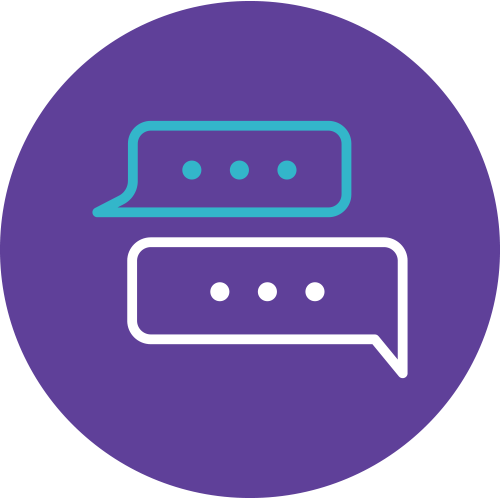Unleash Your Potential as an IT Service Desk Analyst
If you’re looking to embark on a rewarding career journey as an IT Service Desk Analyst, look no further. Our ‘SDI© Service Desk Analyst’ course is your gateway to success in the dynamic world of IT support.
Elevate Your Career
This comprehensive program equips you with the skills, competencies, and industry knowledge required to be a top-notch Service Desk Analyst. You’ll gain practical problem-solving techniques, learn the nuances of effective communication, and understand the latest Service Desk tools and technologies. With this qualification, you’ll be well-prepared to excel in the IT support environment and contribute significantly to your organization’s success.
Unlock Your Potential
Imagine having the expertise to handle customer needs with finesse, manage complex situations, and work seamlessly within a team. This course not only prepares you for the Service Desk Analyst examination but also fosters essential attributes like empathy, conflict management, and stress resilience. So, if you’re ready to unlock your potential and set yourself on a path to professional excellence, our ‘SDI© Service Desk Analyst’ course is your key to a successful IT service desk career.
Course Details
Course Code: SDA; Instructor-led
Exam is included
Audience
Front-line IT service and support analysts with some experience in a first-line or second-line service desk environment. For analysts looking to grow in their role and gain a recognised qualification in their profession, this course will help them to develop practical skills whilst earning a certificate that endorses their commitment and knowledge.
Prerequisites
An SDI© Service Desk Foundation certificate and at least 9 months’ working experience in an IT and support environment
Methodology
This program will be delivered through SDI© Service Desk Analyst classroom workbook which containing all of the presentation materials, course notes, case study and sample exams.
Course Objectives
Following the completion of the course, delegates will have:
- A thorough grounding in the skills, competencies and knowledge required of a professional and effective Service Desk Analyst.
- The essential skills and competencies to deliver efficient and effective support in line with SDI’s best practice industry standards.
- A clear understanding of how to identify customer needs and motivations, how to deal effectively with a variety of situations and how to handle difficult situations.
- Recognizing of the importance of teamwork in the support environment.
- Knowledge of core IT Service Management processes and the role of the Service Desk within these.
- Practical problem solving techniques to help resolve customers’ issues first time.
- An understanding of Service Desk metrics, service level agreements, customer satisfaction surveys, and the latest Service Desk tools and technologies.
- Awareness of the need for developing professional relationships and for displaying respect and cultural sensitivity.
- Practical preparation for passing the Service Desk Analyst examination
Outlines
Module 1: Roles & Responsibilities
- To identify and understand the role and responsibilities of the Service Desk Analyst
- To identify and understand the role and responsibilities of the Service Desk
- To understand the concepts of best practice within the support industry
- To understand the importance of meeting commitments and delivering service excellence
- To determine the attributes, skills and knowledge of a successful Service Desk Analyst
Module 2: Relationship Management
- Determine the meaning of customer service within the IT support environment and identify the key elements for delivering customer satisfaction
- Learn about the importance of teamwork in the Service Desk environment and the value and benefits of developing effective relationships with colleagues and other teams
- Recognize the value, importance and benefits of effective customer relationship management
- Understand the importance of cultural awareness and sensitivity in the support environment
Module 3: Effective Communication Skills & Competencies
- Learn about the importance of effective communication
- Identify ways to ensure your communication is effective
- Determine the requirements for professional call management
- Understand the differences between face to face, telephone and written communication
- Learn about the importance of good listening skills
- Learn about the importance of getting it right when you write
- Understand the value of good questioning skills, and the different types of questions that we ask
Module 4: Effective Rapport And Conflict Management Skills
- Learn about empathy and how it should be used
- Understand the importance effective conflict management and resolution skills for an SDA
- Learn about the importance of effective negotiation for a Service Desk Analyst
- Learn how to deal with difficult user situations
- Gain a basic understanding of stress: the causes, the symptoms and how to manage it
- Gain understanding of assertive, aggressive and passive behavior
Module 5: Quality Assurance Activities For The Service Desk
- What is teamwork?
- Effective teams
- The value of trust
- Daily kaizen
Module 6: Effective Process Management
- Recognize and understand the importance of Quality Assurance processes
- Understand the importance of effective customer satisfaction surveys
- Learn about three types of popular customer satisfaction surveys used in the Service Desk environment
- Determine the value and benefits of Service Desk measurements and statistics
Module 7: It Service Management
- Learn about key responsibilities of the Service Desk Incident Management and Request Fulfilment
- Understand the importance of logging all Incidents correctly and clearly
- Gain understanding of the importance and value of SLAs, OLAs and UCs
- Learn about the various sourcing options utilized in the support environment
- Learn about the two types of escalation and the importance of providing timely status updates
- Learn the basics of and recognize the role the Service Desk plays in the main ITSM processes Problem Management – IT Change Management – Knowledge Management – Security Management – Service Continuity Management
Module 8: Problem Solving
- Determine the steps taken during the problem solving process
- Understand the benefits of creative problem solving
- Identify techniques for creative problem solving
- Learn about analytical problem solving skills
Module 9: Service Desk Technologies
- Identify commonly used technologies within the support environment
- Recognize commonly used methods of support
- Understand the benefits and disadvantages of remote control
- Recognize why and how Service Desks can use instant messaging and chat
- Understand the basic anatomy of a network
- Recognize the primary components of laptop or desktop systems
- Identify some common peripheral devices
Module 10: Tools And Technologies
- Learn the basics of PBX, ACD and IP telephony
- Understand the purpose, advantages and disadvantages of CTI
- Understand the role of self-service technology in the Service Desk environment
- Understand the role of self-help technology for users
- Determine some common uses for self-service technology
- Understand the advantages and potential disadvantages of self-service technology
- Understand the purpose and advantages of selfhealing technology










